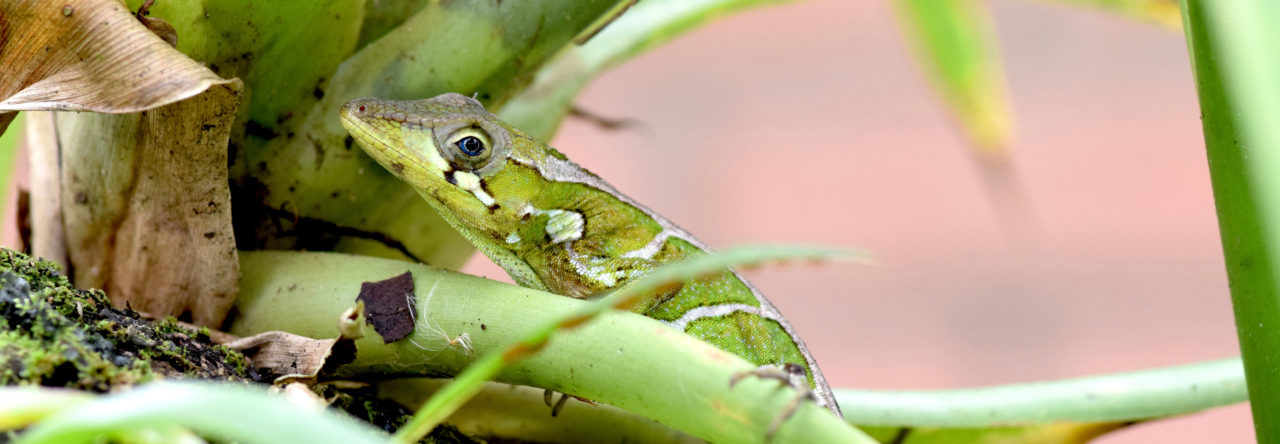The effects of climate change and urbanization on reptiles and amphibians has been a major topic at this year’s SICB. Both are expected to cause drastic changes in the climate, which will likely be severely detrimental to many species. We hope that many species will be able to tolerate these changes by adapting or acclimating, either by thermoregulating or changing their physiology. Adults of many species are able to acclimate in this way, but Josh Hall of the Warner lab wanted to test if eggs (which are unable to move to thermoregulate) are able to acclimate their physiology in response to higher average temperatures and to spikes in temperature that you might find in urban environments. Josh collected two populations of wild A. cristatellus from Miami, an urban population and a forest population, brought them back to the lab, and collected their eggs.
He then put the eggs into five different thermal conditions 1) higher “urban” temperatures, 2) cooler “forest” temperatures, 3) “urban” temperature with a large temperature spike on day 8, 4) “forest” temperature with a large spike on day 10, and 5) “forest” temperature with a small spike on day 10. He predicted that eggs that had a higher baseline temp (i.e. the urban eggs), would be able to tolerate spikes in temperature better than eggs at lower temperatures and would have higher survival and less of a physiological stress response due to the temperature spike. Contrary to his hypothesis, he found that high temperatures, and spikes were both detrimental to the survival of eggs and hatchlings, and affected baseline and max heart rate in embryos. This is somewhat concerning because it suggests that even a single short burst of heat can kill embryos, and have lasting affects on juveniles. The bursts, which you might expect in urban areas, have a more profound affect when the background temperature is higher, which will likely happen due to climate change.
- Testis Size Evolves Faster than Sperm Size across Anoles - January 27, 2019
- SICB 2018: Local density of conspecifics affects sperm phenotypes in wild Anolis sagrei lizards - January 10, 2018
- SICB 2018: Copulation rates in anole lizards are correlated with muscle damage - January 7, 2018




Leave a Reply